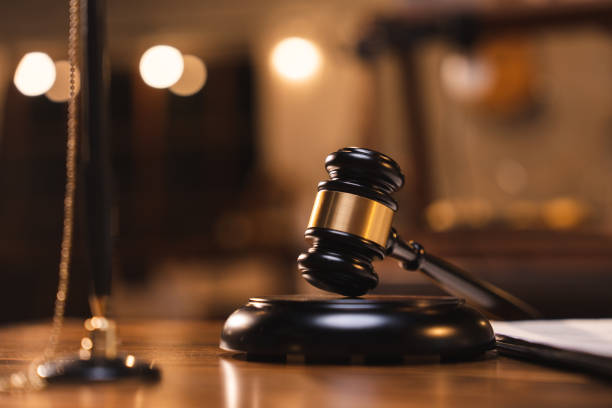News
Blogger Ordered to Pay Sh3.3 Million for Defamatory Facebook Post
The court’s ruling extends beyond monetary damages.

A Siaya court has delivered a significant judgment in the fight against online defamation, ordering blogger Michael Ochieng to pay Sh3.3 million in damages for a Facebook post that targeted a senior county official.
Resident Magistrate Jacob Mkala ruled that Ochieng, who operates under the name “Mike Ochieng” on social media platforms, defamed Wilfred Nyagudi, the Chief Executive Officer of the Siaya County Public Service Board, through content that questioned his character and fitness for public office.
The substantial award consists of Sh3 million in general damages and an additional Sh300,000 in exemplary damages, reflecting the court’s view of the severity of the defamation.
The defamation suit arose after Ochieng published what the court determined were false and malicious statements about Nyagudi on Facebook.
According to court documents, these statements portrayed the county official as having dubious character traits that rendered him unsuitable for his public position.
Nyagudi initially sought resolution outside the courts, but when Ochieng refused to retract the statements or issue an apology, legal proceedings became necessary. The plaintiff argued that the published content was deliberately designed to damage his professional reputation and personal integrity.
In his June 13, 2025 judgment, Magistrate Mkala concluded that Nyagudi had successfully proven his case based on the balance of probabilities standard required in civil defamation cases.
“From the analysis of evidence placed before me, it is my holding that the plaintiff has made out a case against the defendant. Consequently, judgment is hereby entered for the plaintiff,” the court stated.
The court’s ruling extends beyond monetary damages.
Magistrate Mkala issued a permanent injunction requiring Ochieng to delete all defamatory content from his social media platforms and to publish an unequivocal public apology through the same channels where the original defamatory content appeared.
This aspect of the judgment reflects the court’s recognition that online defamation can have lasting effects due to the persistent nature of digital content and its potential for widespread distribution.
Felix Oketch, representing Nyagudi, characterized the ruling as a template for addressing online defamation disputes through proper legal channels rather than extrajudicial means.
“People should be careful about posting false information against others without any evidence,” Oketch stated, emphasizing that constitutional protections for freedom of expression do not provide immunity from defamation liability.
The lawyer’s comments about handling such disputes through legal processes “and not through assault or killings” appear to reference broader concerns about how online conflicts are sometimes resolved through violence in Kenya.
This case represents part of a growing trend of courts across Kenya grappling with defamation in the digital age.
As social media platforms become primary venues for public discourse, the legal system is increasingly called upon to balance free speech rights with protection from reputational harm.
Kenya Insights allows guest blogging, if you want to be published on Kenya’s most authoritative and accurate blog, have an expose, news TIPS, story angles, human interest stories, drop us an email on [email protected] or via Telegram
-

 Grapevine2 weeks ago
Grapevine2 weeks agoRussian Man’s Secret Sex Recordings Ignite Fury as Questions Mount Over Consent and Easy Pick-Ups in Nairobi
-

 News6 days ago
News6 days agoTHE FIRM IN THE DOCK: How Kaplan and Stratton Became the Most Scrutinised Law Firm in Kenya
-

 Investigations1 week ago
Investigations1 week agoMulti-Million Dollar Fraud: Three Kenyans Face US Extradition in Massive Cybercrime Conspiracy
-

 Economy1 week ago
Economy1 week agoIran Demands Arrest, Prosecution Of Kenya’s Cup of Joe Director Director Over Sh2.6 Billion Tea Fraud
-

 Business1 week ago
Business1 week agoA Farm in Kenya’s Rift Valley Ignites a National Reckoning With Israeli Investment
-

 Africa1 week ago
Africa1 week agoFBI Investigates Congresswoman Ilhan Omar’s Husband’s Sh3.8 Billion Businesses in Kenya, Somalia and Dubai
-

 Grapevine3 days ago
Grapevine3 days agoA UN Director Based in Nairobi Was Deep in an Intimate Friendship With Epstein — He Even Sent Her a Sex Toy
-

 Politics2 weeks ago
Politics2 weeks agoSifuna, Babu Owino Are Uhuru’s Project, Orengo Is Opportunist, Inconsequential in Kenyan Politics, Miguna Says
















